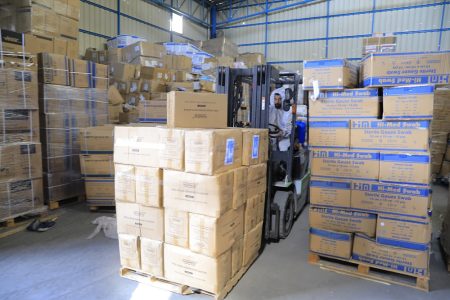The Ministry of Health (MOH) in Malaysia is launching new renewable energy projects to make healthcare more sustainable. These projects, part of a larger strategy, are being piloted at selected healthcare facilities in the Klang Valley through Power Purchase Agreements (PPAs). The initiative is supported by the creation of the Centre for Healthcare Engineering Brilliance, Research and Innovation (BRAIN). The ministry is also encouraging the use of biodegradable products to boost the circular economy. These actions are aimed at making healthcare operations more environmentally friendly and efficient.
Ministry’s Commitment to Sustainability
At the Green Healthcare Facilities Conference 2025, Deputy Health Minister Datuk Lukanisman Awang Sauni revealed the details of these projects. The conference, themed “From Vision to Action: Shaping the Future of a Green and Healthy Environment,” brought together key leaders to discuss the future of healthcare in Malaysia. Lukanisman emphasized that the MOH’s efforts go beyond short-term actions, aiming for long-term improvements in climate resilience and resource efficiency.
Lukanisman discussed the importance of continuous innovation and smart financing for a sustainable health system. The conference also featured talks from Natural Resources and Environmental Sustainability Minister Nik Nazmi Nik Ahmad and Health Director-General Datuk Muhammad Radzi Abu Hassan.
A Call to Action for the Healthcare Sector
Lukanisman urged the healthcare sector to think bigger and act boldly in the coming decade. He emphasized that the next ten years will require more than just basic compliance with environmental standards. The focus should be on setting higher standards in areas like building design, operations, and community involvement in environmental health initiatives.
Lukanisman stressed that a healthy planet is essential for healthy people. He encouraged the healthcare sector to take bold steps, knowing that when they lead, others will follow.
Key Achievements in Sustainability
Looking back on the MOH’s progress since the launch of its Sustainability Programme in 2015, Lukanisman highlighted several accomplishments. These included the introduction of energy management systems in hospitals, certification for green building operations, and improvements in indoor air quality. The MOH also established a sustainable waste management program based on the principles of reduce, reuse, and recycle (3R).
Lukanisman pointed out that these successes were achieved with strong internal support from MOH staff, engineers, healthcare workers, and concession company partners.
Carbon Neutrality Goals
In 2023, the MOH launched the Carbon Neutral Healthcare Facilities Blueprint. This initiative provides a roadmap for healthcare facilities to adopt renewable energy, improve water efficiency, and enhance waste management practices. The blueprint is part of Malaysia’s broader decarbonization strategy. The goal is to make the entire MOH system carbon-neutral by 2045, ahead of Malaysia’s national net-zero target of 2050.
Lukanisman emphasized the urgency of these efforts, noting the connection between climate change and public health. Rising temperatures, extreme weather, and pollution are increasing risks to healthcare systems and vulnerable communities.
The Role of Healthcare in Combating Climate Change
Globally, the healthcare sector is responsible for nearly five per cent of greenhouse gas emissions. Lukanisman explained that as the sector cares for patients, it also has a responsibility to protect the environment. He stressed that addressing the climate crisis is not just an environmental issue, but a public health issue as well.















